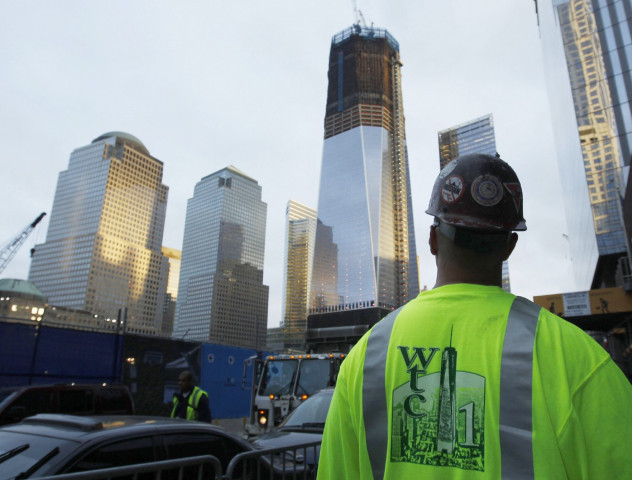Life 10 years after 9/11
Al Qaeda is very much around while many institutions of the Pakistani state are struggling to fight it.

Life 10 years after 9/11
In fact, not even the Americans in their triumphalism under President Obama say that the death of bin Laden has put an end to terrorism. At the time of writing, America is preparing for another assault by al Qaeda to avenge the death of its leader and to mark the fateful day when America was humbled on 9/11. Pakistanis say none of the 19 hijackers who took part in the 9/11 act were Pakistani, but the truth which they ignore is the fact that all them had met Osama bin Laden in Afghanistan before the incident and had passed through Pakistan. The planner of 9/11, Khalid Sheikh Muhammad, was living in Karachi and several top-tier al Qaeda leaders who have been arrested or killed have all been found in Pakistan.
How successful has the West been in tackling the menace of al Qaeda? One can say that the highly organised states of the West have prevented a repeat after being struck once. The ‘sleeper cells’ of France, Spain and the UK are being relentlessly hunted and caught before they can inflict more destruction. In this, it must be said, these countries were greatly assisted by Pakistan which has caught or helped catch hundreds of al Qaeda terrorists — some of them extremely important. Then, the western blunders overtook the train of events. The US attacked Iraq without the permission of the UN Security Council. It divided a world that had earlier united to help the US attack al Qaeda in Afghanistan and had given Pakistan the moral grounds on which to help the international community. Many of the Muslims living in the West became alienated. The Americans passed laws like the Patriot Act to tackle their own rage. Europe also enacted tough laws to curtail its multiculturalism; and western politicians silently began to build a sinister anti-Islamic consensus. Indirectly, al Qaeda had succeeded in creating the civilisational rift it wanted.
Pakistan had its own blunders. It had fought a decade of deniable jihad in Afghanistan and Kashmir with the help of non-state actors. These were trained in Afghanistan in camps set up by al Qaeda with Arab money with the ‘warriors’ coming from communities influenced by the mosque and madrassa networks of Pakistan. The Arab donors who funded this state-sponsored terrorism took no notice of the fact that Pakistan had joined the war against terrorism. The jihadi loyalty swung to the side of al Qaeda, followed by a gradual curtailment of the writ of the state. The territory from where Pakistan culled its non-state actors now became the ‘ungoverned spaces’ where al Qaeda and its international brigades and Pakistani loyalists became dominant. The state could not — or did not want to — stand up to the challenge. The national discourse swung against America and the West, gathering muscle by linking America with arch-enemy India and Israel. Many in society and state institutions swung behind this discourse and began to identify with al Qaeda’s ideology. The decade has brought Pakistan to its knees. Al Qaeda is very much around while many institutions of the Pakistani state are struggling to fight it. Some are not even sure if they should fight it at all! Depressing as it may sound, the fact is that if al Qaeda envisaged victory in this way, it has succeeded. It has killed more Pakistanis than it hopes ever to kill Americans. And there are those among us who believe that if the Americans leave the region, the threat to Pakistan from extremism and militancy will go away as well.
Published in The Express Tribune, September 11th, 2011.















COMMENTS
Comments are moderated and generally will be posted if they are on-topic and not abusive.
For more information, please see our Comments FAQ